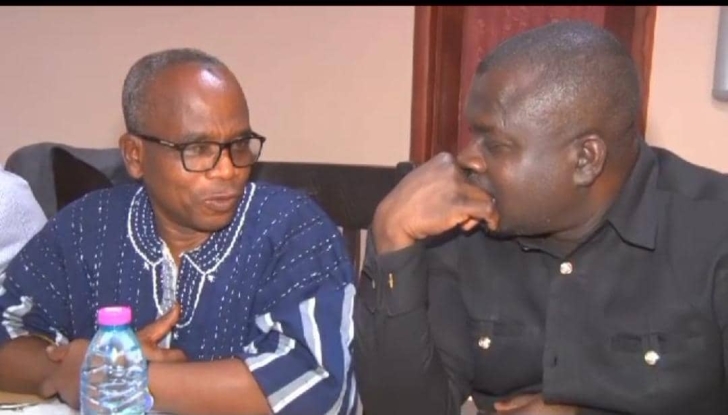
'Popular' blacklisting of assault suspects is not productive in public interest - NMC to GJA
The Chairman of the National Media Commission (NMC), Yaw Boadu Ayeboafoh has disagreed with the Ghana Journalists Association's (GJA) decision to blacklist people who were alleged to have assaulted journalists while in the line of duty.
He said the call for boycott or black out by the GJA would not be productive or functional to the public interest.
Mr Boadu-Ayeboafoh was commenting on a recent decision by the GJA to blacklist two Members of Parliament of the New Patriotic Party, Mavis Hawa Koomson of Awutu Senya East and Farouk Aliu Mahama of Yendi for their alleged attack on journalists in the recent parliamentary primaries of the party.
Peaceful election
He was delivering the key note address at a one day training workshop organised by the GJA with support from the US Embassy in Accra for journalists from the Ashanti, Bono, Ahafo and Bono East Regions on ‘Promoting Peaceful Journalistic Media Platforms Ahead of Elections 2024.’
Attack
He condemned what he described as the “recent purile, vicious and violent attack on journalists for exercising their public obligation of informing our people,” which he said has “resulted in an equally unilateral decision of the GJA of calling for a boycott or blackout on such people.”
He said while the approach by the GJA was popular, “it is dysfunctional.
“While I still hold the position that it is disheartening for journalists to be attacked violently, the unilateral resolve to blackout or boycott is not the most productive reaction. We cannot approach impunity with impunity,” he said.
Approach
Mr Boadu-Ayeboafoh said it was not enough to condemn such acts but to encourage victims to seek redress by reporting to the Mechanism for the Safety of Journalists under the NMC and the Ghana Police Service.
That, according to him, was to ensure that “the media freedom aspect as well the criminal dimension are adequately investigated and the necessary legal penalties imposed on the criminals.
“I will support any effort to ensure that justice is done against all such deviant acts rather than blackout or boycott. Condemning such acts is in order but not the blackout or the boycott” he reiterated.
Rebuttal
However, in his rebuttal, Albert Dwumfour, President of the GJA, maintained that the association was right in its directive for a blackout of the perpetrators of the attacks on the media.
He said the issue has been duly reported to the police and the police were yet to invite the alleged suspects for questioning and was of the view that blacklisting them was only one of the options available to the GJA.
He said aside reducing media visibility for the suspects, the blackout would also have effect on their image internationally and their future career.
Objective
Mr Dwumfour said the objective of the training was to offer professional development to online editors, producers, talk show hosts to build their knowledge based in contributing to violent free media platforms.
He said it was also to encourage information sharing with election related entities to better inform or work with the Electoral Commission with the view to promoting freedom of expression for violent free and credible news.
“GJA will also create a platform to share best practices of elections among others,” he said.
Stakes
He said stakes in the next election would be very high given the incumbent NPP's resolve to break the eight and the opposition’s desire to also comeback to power.
Aside that, he said the insecurity in the sub-region coupled with the economic challenges in the country “point to heightened and tensed atmosphere raising the need to ensure that journalist talk show hosts in their agenda setting roles, maintain an atmosphere that encourages discussion on policy issues while promoting and protecting the space for peaceful discourse integral for a successful peaceful election in December 2024,” he pleaded.
